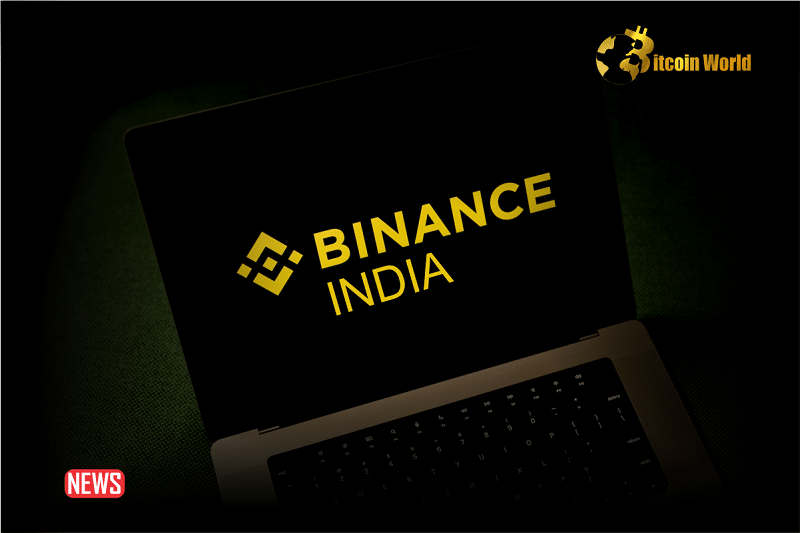Is Binance making a comeback in India? The world’s largest crypto exchange is in talks with the Indian government to restore access for Indian users. But there’s a catch! Compliance with the Prevention of Money Laundering Act (PMLA) is proving to be a major roadblock. Let’s dive into the details of this ongoing saga.
Binance’s Plea and India’s Firm Stance
Binance is reportedly willing to settle outstanding taxes to resume operations in India. However, the exchange has expressed its unpreparedness to immediately comply with PMLA guidelines, citing the need for time to establish necessary procedures. They requested permission to resume operations in the interim, but the Indian government has firmly rejected this request.
The government’s stance is clear: “Compliance with PMLA is paramount. They have been explicitly told that any discussion on resumption of their services in India is only after the government is satisfied with their responses on the notices sent by the FIU.”
Why the Hold Up? Understanding PMLA Compliance
The Prevention of Money Laundering Act (PMLA) is a crucial piece of legislation in India aimed at combating money laundering. For crypto exchanges like Binance, PMLA compliance involves implementing stringent measures to:
- Verify customer identities (KYC – Know Your Customer).
- Monitor transactions for suspicious activity.
- Report suspicious transactions to the Financial Intelligence Unit (FIU).
- Maintain detailed records of all transactions.
The Backstory: A Ban and Its Aftermath
Earlier, the Indian government blocked nine offshore crypto platforms, including Binance, due to their failure to respond to show-cause notices from the FIU. This move highlights the government’s commitment to regulating the crypto space and ensuring compliance with Indian laws.
The affected exchanges included:
- Binance
- KuCoin
- Huobi
- OKX
- Gate.io
- Bittrex
- Bitstamp
- MEXC Global
- Bitfinex
Indians Using VPNs: A Workaround and Its Risks
Despite the ban, data suggests that approximately 4,000 Indian crypto traders are using VPNs to access Binance. This workaround allows them to bypass the restrictions, but it also comes with risks.
Risks of using VPNs to access banned exchanges:
- Legal repercussions: Using VPNs to circumvent government regulations can have legal consequences.
- Security vulnerabilities: VPNs can sometimes compromise your online security, making you vulnerable to hacking and data breaches.
- Lack of recourse: If you encounter issues with a banned exchange, you may have limited or no legal recourse.
The Bigger Picture: Crypto Holdings in Offshore Wallets
It’s estimated that nearly $4 billion worth of crypto belonging to Indian traders is stored in offshore wallets. This significant amount underscores the need for clear regulations and compliant platforms within India to encourage users to keep their assets within the legal framework.
See Also: Apple Removes Foreign Crypto Exchange Apps From India’s App Store
What’s Next for Binance and India?
The future of Binance in India hinges on its ability to demonstrate full compliance with PMLA regulations. The Indian government is unlikely to budge on this front, emphasizing the importance of regulatory adherence for all crypto exchanges operating within its borders.
Key takeaways:
- Binance is seeking to resume operations in India.
- The Indian government is prioritizing PMLA compliance.
- A significant amount of Indian crypto wealth is held in offshore wallets.
- The use of VPNs to access banned exchanges carries risks.
Disclaimer
Disclaimer: The information provided is not trading nor financial advice. Bitcoinworld.co.in holds no liability for any trading or investments made based on the information provided on this page. We strongly recommend independent research and/or consultation with a qualified professional before making any trading or investment decisions.
#Binance #WRITE2EARN
Disclaimer: The information provided is not trading advice, Bitcoinworld.co.in holds no liability for any investments made based on the information provided on this page. We strongly recommend independent research and/or consultation with a qualified professional before making any investment decisions.


